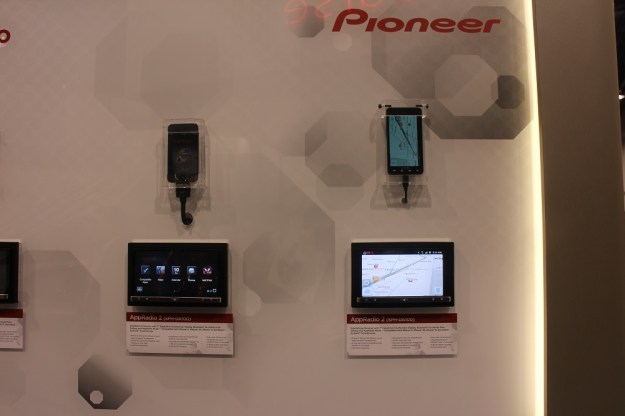
When Apple released the iPhone 5, it naturally created quite the buzz, and consumers flocked to the company’s latest and greatest smartphone in droves. While the iPhone 5 featured a larger screen and a host of other improvements, one aspect that people weren’t so keen on was the switch from a 30-pin dock connector to the new Lightning connector. The switch from the old to the new meant that manufacturer and aftermarket companies, including Pioneer, were going to have to offer new connectivity solutions for Apple’s latest device.
As it turns out, Pioneer, is… well, pioneering this space, and at CES 2013, the company revealed a kit that adds iPhone 5 connectivity to its AppRadio receivers. To use an iPhone 5, the AppRadio receiver requires Apple’s Lightning-to-Digital-AV cable, a Lightning-to-USB adapter connected to a new CD-IH202 connectivity kit, and the AppRadio app for the iPhone 5.
Additionally, Pioneer announced a host of new apps that are compatible with AppRadio, including Beej, Maxthon Cloud Browswer, Parkopedia, Glympse, Rdio, and iHeartRadio.
The new iPhone 5 CD-IH202 connectivity kits should be available in the spring in addition to a firmware update to the current AppRadio 2 hardware support for the iPhone 5.


